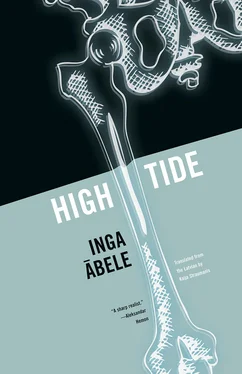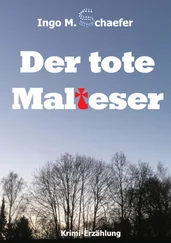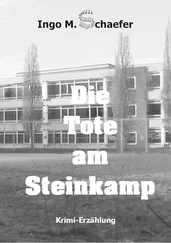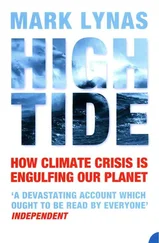“Sorry.”
“Don’t worry about me, I don’t have that much free time. I can’t afford to.”
“What?”
“The same as before. Don’t look at me in such a scary way.”
“You can tell Laura not to do that. But not me.”
“Don’t smoke!”
“Hm. Take care. Write your dissertation.”
“Thanks. You take care, too.”
“Pāvils!”
“Yeah?”
“I love you.”
“I know.”
“You know?”
“Yes. You love me, the earth, the light, slugs, these tiny green leaves here, you love the past and present, children, strange, old and mean women, horrible fates, wavering stares, new buildings, the sea, clouds, God, and goddesses. Total chaos. It’s impossible to love you because you love too much. You love, and at the same time don’t know how to, you don’t know what love is. You’re afraid of life and death, and you desire both of them. You celebrate sadness without really knowing what sadness is. You advertise joy without feeling it. You advertise an empty life without knowing what life without nothing is. Lower your barriers, sis. A dog only becomes a dog when you fence it in.”
“I don’t have barriers. Aksels was a barrier. And he was taken away from me.”
“Maybe you’ll get him back.”
“He’s dead, remember, Jesus!”
“Is there life after death and/or love?”
“There are people who are meant to have only one great love in their lifetime. How do you save yourself for the next one?”
“Do you know who your one great love is?”
“I don’t.”
“Do you know what tomorrow will be like?”
“I don’t know anything.”
“Then stop it. And don’t look at me like that.”
Surveyingthe crowd in the Berlin Art Academy café, she was unable to hold back and asked loudly:
“So that’s the end?”
The sea of voices drowned out the sound, but a few people sitting closer to her heard. Elias, from Cyprus, leaned his head of black curls toward her:
“What did you say?”
“So that’s the end.”
“Yes, that’s the end.”
He smiled over his glasses, his brilliant smile. The Berlin seminar was almost over. Tomorrow — her suitcase and the flight home.
Ieva looked around her: Roberta, Neil, Gojel, and Eduardo were at one table. She, Peter, Elias, Barbara, and Marijka were at another. That day the preview of Sybille Bergeman’s photography exhibit had taken place in the exhibition hall, and the café overflowed with attendees. They drank coffee, chatted, smoked. Sybille herself was supposed to show up! — the excited faces of those present read. They’d be able to ask her questions. So close they could touch her. Get her autograph and a smile. The way Sybille would use her lens to capture a smile, a caress, the disappearing shadows and lights in the fluctuating daylight. Now they could get these in excess in person and, when parting, even kiss her hand.
The crowd a single, hundred-fingered hand.
Peter was discussing something with Gojels and the young architect in the red shirt — what was his name again? Marcelle? Mario? — from Berlin. Next to Peter, the otherwise businesslike architect looked like a baby. Noticing Ieva’s fixed, introverted stare, Peter turned toward her and waved a glass of white wine under her nose. She broke free from her thoughts and back into the bustling world around her.
“Isn’t 2 p.m. too early for wine?”
Peter smiled meaningfully.
“I know what too late means, but not what too early means.”
Ieva laughed:
“But I don’t know what too late means.”
Peter stared at her for a moment and in his typical careless manner flipped his dark hair over his shoulder. Then he said:
“Yes, it could be that it’s too early for you to know what too late means.”
The small, dark theater slowly filled with students. How many movies were there left to see — two?
“Peter, please!”
Elias’s smile! Gojels’s, Mario’s, and Barbara’s profiles. They were all so nice.
Except Peter. When he presented at yesterday’s readings Ieva had felt a childish and long-forgotten desire to be protective. He had immediately upset the audience. But those were the rules of the game. Peter had to be edgy by definition. Strange how the truly edgy are rarely crass or confrontational — this type subconsciously calls out for love, sometimes rather violently. Peter was fragile and ironic, there was plenty of love in him, he wanted freedom. “In these bittersweet pages you’ll find the fall of a regime and the past two decades of Eastern Europe”—that’s what Rolling Stone had written about his play. “Simply a polymath vagabond for the needs of New Europe,” Lawrence Norfolk had flippantly added. How could they all place the European label on Peter! Like a bunch of kids who are just worried whether or not they’ll be able to hear their mothers calling for them.
In contrast to Germany, people in Hungary had never believed in Communism, so to them the regime was straight-up fact, Peter had pitched during his presentation. Exactly — pitched. With a broad stance, his frail shoulders thrown back, always flipping his dark hair. With an easy smile on his face. Sometimes you want to slap such unshakably ironic people, just to see if they can feel anything.
Shows in six of Germany’s biggest theaters. His first piece translated into fifteen languages. Multimedia performances with his participation in over twenty countries. A monthly column in the Frankfurter Allgemeine Zeitung . He knew how to play his cards right. The kid had scored a ten on his first shot. And he even looked the part. What’s more — he looked like a loner who couldn’t be really surprised by anything in the world anymore. Often full of a slight disdain. That’s what happens to public entertainers. Just like professional party planners hate partygoers.
But Ieva knew that Peter’s disdain was purely symbolic. He was used to looking at the world cynically, he shrunk from anything forced on him. Such imposed, positive emotions are usually just for connecting a writer to his audience. Like Paulo Coelho, who went out in front of hundreds of readers at book fairs — and both sides came together in a convulsive overflow of love. Just yesterday Ieva had overheard some students at the café laughing about Coelho — about his habit of drinking freshly squeezed carrot juice with freshly made warm cream. About housewives who, upon meeting him, jump at the chance to tell him about their troubles with their husbands while the author would listen and offer love-filled advice in a fatherly manner.
But Peter’s stare was a warning.
Be careful — his eyes seemed to say as they moved over the audience. But not for my sake. I grew up with the dangers of Hungary. So I warn you — be careful for your sake. The audience sat silently and tried to decode this mysterious message called Peter.
In closing Peter read a fragment from his play in English, but the audience sat in icy silence. Then he asked a translator to read the same fragment in German, saying, “Usually I’m used to seeing more smiling faces!” But the people decided he was trying to work them. There were a few older men in the audience who were more directly caught up by the young Hungarian’s overt provocation. One person stood up indignantly and shouted—“Stop translating, all Germans understand English!”
Peter answered that understanding and hearing a text are not the same thing. This led to a lengthy discussion. Ieva saw that Peter was growing helpless in the face of aggression.
Ieva asked:
“Peter, irony is meant to create distance, isn’t it?”
Peter turned his attention to her. He looked at her warily.
Читать дальше












